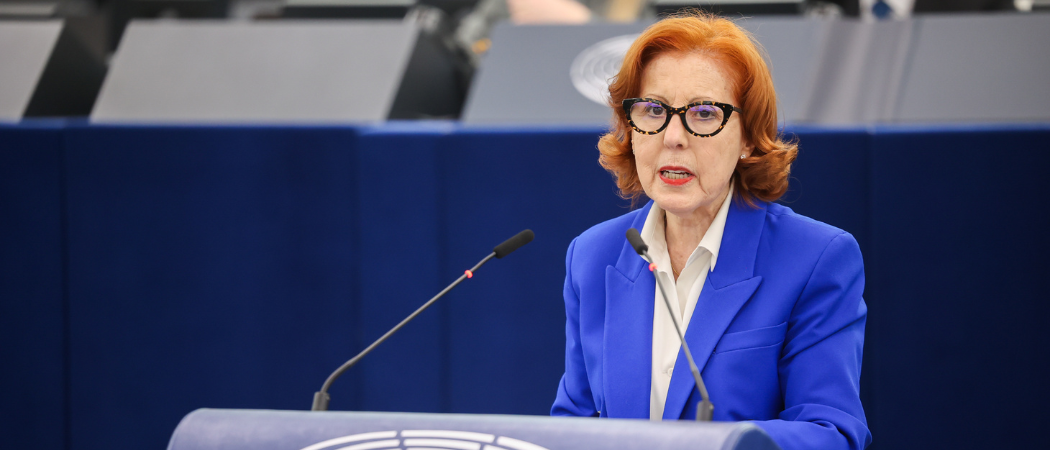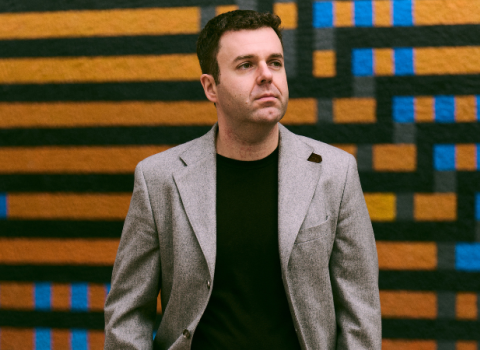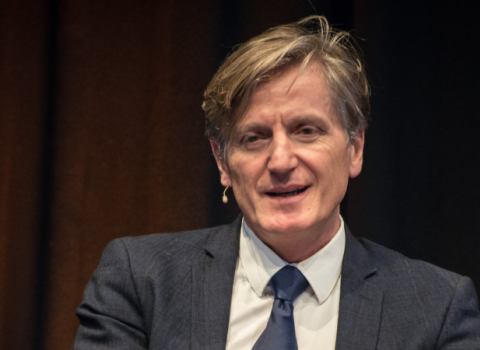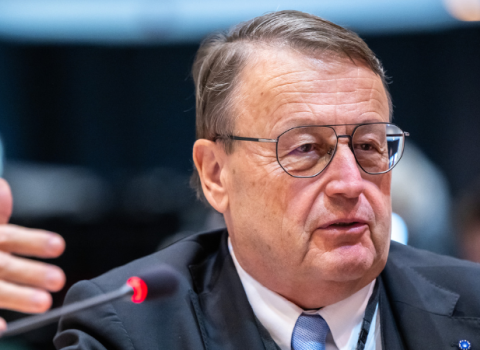Former MEP, who was involved in the formation of the European Institute of Innovation and Technology, rejects calls for it to be axed

Former MEP Maria da Graça Carvalho. Photo credits: Alexis Haulot / European Union
Maria da Graça Carvalho has reiterated her support for the European Institute of Innovation and Technology (EIT) amid mounting calls for the agency to be scrapped.
Carvalho, former MEP and now Portugal’s environment minister, was directly involved in the formation of the EIT in 2008, first as principal adviser to European Commission president José Barroso, then as a Parliamentary rapporteur for Horizon 2020.
Although no longer an MEP, she told Science|Business she remains convinced of the importance of the EIT, and of EU research and innovation funding more generally.
“EIT is the only instrument in Europe’s science framework programme that covers the entire spectrum of the knowledge triangle: education, research, and innovation,” she said.
“I do not feel that this concept is outdated. Quite the opposite: I believe that EIT is in many ways a reference for where we want to go in terms of R&D in Europe. I am confident that most member states share this view,” said Carvalho.
It’s not clear yet what the outcome of this debate will be. Denmark and Latvia, the first two countries to publish position papers on the future 2028-2034 framework programme (FP10), are both calling for EIT to be discontinued, at least in its current form. But most other member states have yet to take a public position.
The EIT was designed to connect research, higher education, industry and private capital to spur innovation. However, since the launch of the European Innovation Council (EIC) in 2021, concerns have been raised about overlap between the two bodies.
Denmark says the EIT’s budget should go towards strengthening the EIC, but its “well-functioning” knowledge and innovation communities (KICs) should continue towards financial autonomy. Latvia argues EIT’s innovation-related activities should be integrated into the EIC, while its education schemes could continue under Erasmus+.
Carvalho says the EIC is also a “critical instrument” for the green and digital transitions and for strengthening Europe’s position in the world. She has previously suggested EIT and EIC could have “common structures”.
Hard realities
In her final months in the European Parliament, Carvalho was one of the leading voices pushing for more EU funding for research and innovation, calling for the next seven-year framework programme to have a €200 billion budget, double that of Horizon Europe.
The hard realities of national politics haven’t changed her convictions. “Without a strong and continuous investment in research and innovation, the EU will fall short of all its goals,” she said.
Competitiveness has emerged as a key priority that is likely to shape policy debates in Brussels in the coming years, influenced by two reports by former Italian prime ministers Enrico Letta and Mario Draghi. The former recently proposed revamping the single market by creating a “fifth freedom” of research and innovation, while the latter is due to publish his conclusions on EU competitiveness this summer.
Attention had already turned to industrial competitiveness at the end of the current mandate. Policies such as the Net-Zero Industry Act and the Strategic Technologies for Europe Platform (STEP) aim to ensure key technologies in areas such as climate change and defence are manufactured in Europe, despite generous subsidies on offer in the US and China.
“In the next five years we will truly start implementing the very comprehensive legal framework that was built in the last term around this goal,” Carvalho said.
Research and innovation will have to be at the heart of that strategy, and while she may have quit Brussels, the former European People's Party MEP and research and industry (ITRE) committee member continues to believe in the importance of collaboration. “I am a very pro-European member of a national government,” Carvalho said, adding that she intends to play an “active role” in the European Council.
She sees fostering collaboration as one her main achievements of the last five years, saying, “One of the things that prides me the most is to realise that, namely in the different reports that were assigned to me, there was always a way to build the consensus that led to the final approval.”
Looking back from the perspective of ten years as an MEP, Carvalho also has a few words of wisdom for future ITRE members. “Focus on the fields you are more familiar with, study the files in detail, listen to the stakeholders and have an open mind during negotiations,” she said. “That is the formula for making an impact in your time the European Parliament.”





 A unique international forum for public research organisations and companies to connect their external engagement with strategic interests around their R&D system.
A unique international forum for public research organisations and companies to connect their external engagement with strategic interests around their R&D system.